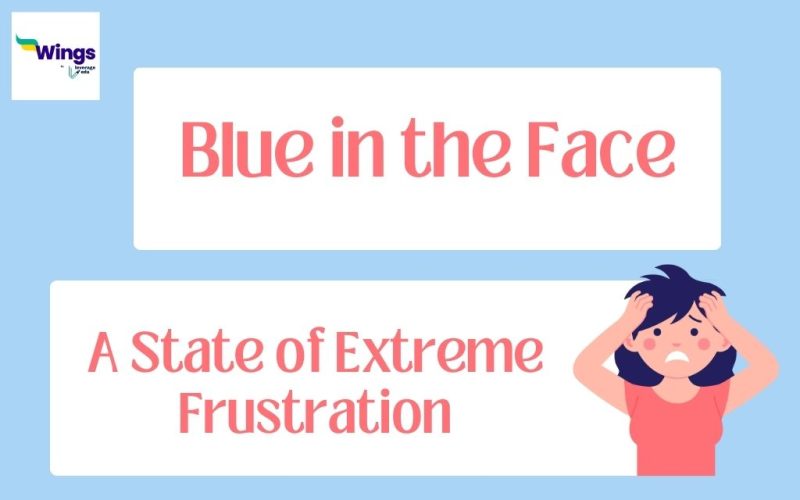The phrase “blue in the face” is an idiomatic expression that refers to a state of extreme frustration, exhaustion, or exasperation resulting from repeated efforts to persuade or convince someone without success.
When one argues or explains something exhaustively to the point of becoming physically and emotionally drained, their face may turn blue due to the intensity of their efforts. The expression implies that despite their persistent attempts, they have been unable to change the other person’s opinion or behavior.
It highlights the futility of continuing a futile argument or endeavor that is unlikely to yield any positive results.
Also Read: Grass is Greener on the Other Side Meaning, Examples, Synonyms
Usage with Examples
Since ‘blue in the face’ is typically associated with intense discussions, it is generally understood to mean that the speaker becomes breathless. This occurs when there is an insufficient amount of oxygen in their body, causing their face to acquire a bluish hue.
Mentioned below are some examples where you can use the idiom blue in the face:
- He argued with his stubborn friend about the benefits of exercise until he was blue in the face, but his friend refused to listen.
- The teacher explained the concept to the students until she was blue in the face, but the class still struggled to grasp the idea.
- Shawn’s mother told him that he can complain about it till he is blue in the face, but the whole family will be going to their grandmother’s house.
Also Read: Useful Idioms with Examples, Sentences and Meanings
Synonyms and Similar Words to Blue in the Face
Mentioned below are some synonyms and related words to blue in the face:
- Angry
- Mad
- Furious
- Ballistic
- Infuriate
Blue in the Face Meaning Quiz
She chided her husband to the point of going blue in the face when:
- He refused to go out on the dinner date.
- He left the kitchen utensils on the table.
- He bought her a bouquet of flowers.
Answer: He refused to go out on the dinner date.
This was all about the idiom blue in the face meaning and examples. Hope you understood the concept where it’s used. For more such blogs, follow Leverage Edu.
 One app for all your study abroad needs
One app for all your study abroad needs














 45,000+ students realised their study abroad dream with us. Take the first step today.
45,000+ students realised their study abroad dream with us. Take the first step today.

